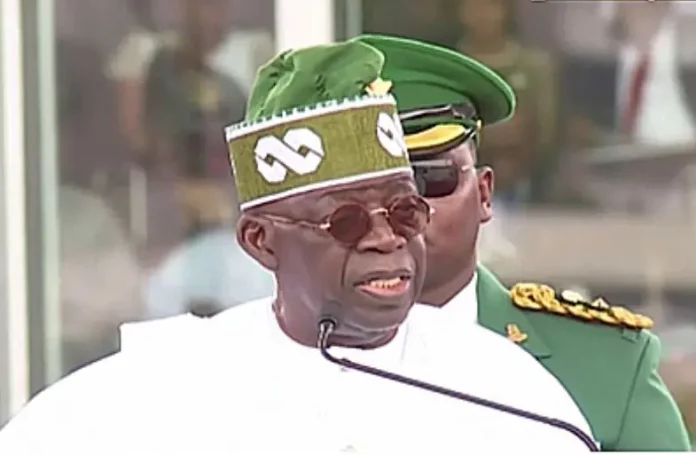Some economists have applauded President Bola Tinubu for informing Nigerians about his policies and incentives taken to cushion the effect of the fuel subsidy removal.
Read more at:https://hobnobnews.com/2023/08/01/broadcast-economists-hail-tinubu-on-incentives-worry-about-implementation/
The experts gave the commendation in separate interviews with our correspondent while reacting to the President’s broadcast message on Monday night, in Lagos.Prof. Akpan Ekpo, Chairman, Foundation for Economic Research and Training (FERT), said that it was a good thing the president addressed the nation and kept the masses informed, adding however, that a lot of the issues raised still needed more details.
For example on the manufacturing sector where he said government would spend N75 billion between July 2023 and March 2024 to fund 75 enterprises and that each of the 75 enterprises would be able to access N1 billion credit at 9 per cent per annum with maximum of 60 months repayment for long term loans and 12 months for working capital.
“It is not possible! There is no way you can put a lot of money as a businessman in 15 months, you make profit and start repaying. This plan is not well thought through.
Also, I feel that the broadcast favours the private sector and business owners more than the working class and the vulnerable.
“The issue where he also talked about rolling out buses across the states and local governments for mass transit at a much more affordable rate, does not have its time frame well spelt out. They have been saying this for almost three weeks now,’’ Ekpo said.
The Fert Chairman, therefore, called on the government to ensure the implementation plan of these incentives .
Ekpo also said, “on review of workers salary, we had thought that salaries would have been reviewed and agreed upon before the announcement.
So, these are some of the gray areas; now that he has said this, what will happen in the next two weeks is what we don’t know.
“And I hope that from time to time, maybe not him, but someone from his office will keep us informed on what is going on.’’
Uche Uwaleke, Professor of Finance and Capital Market at the Nasarawa State University, Keffi, also described the President’s address to the nation as“ quite soothing’’.
According to him, he spoke in clear terms and I think Nigerians should allow him the benefit of doubt.
“But it was short on how the three arms of government will share in the pains of the governed, especially with respect to effecting a significant cut in the cost of running government,’’ he said.
Prof. Ndubisi Nwokoma, Director, Centre for Economic Policy Analysis and Research, University of Lagos, Akoka, said, “These seeming incentives, though laudable, are not new and have not worked as designed, in the past.
“The lag in policy implementation remains counterproductive. Case of swimming against the current. New policies were announced on May 29, and remedial policies on the externalities brought forth on July 31.
“Business may not thrive under a hostile operating environment especially insecurity.’’
Nwokoma urged the government to urgently stimulate consumer spending to stimulate the economy adding that it was key when a country’s economy is going through a decline.
He said: “This provides a stimulus for production. If production is stimulated without the empowerment of consumer spending, then gains in production will be short-lived.
“A classic Keynesian prescription to pull out of a recession or economic decline is stimulated spending.
However, alongside this, inhibitions to production such as the pervasive insecurity and other supply chain disruptions have to be addressed.’’
Nwokoma also advised that Public sector salaries be increased and implemented as soon as possible saying that the private sector was already making adjustments.
He expressed worry about the effective implementation of these incentives.
He said: “Finally, key issue now is effective implementation, if anything good (no matter how little) is to come out of this new government posture”.

